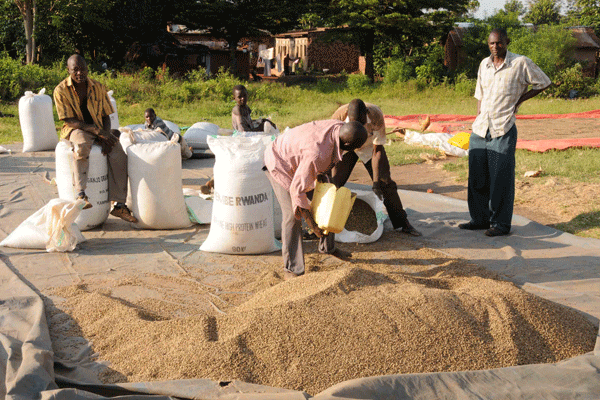Prime
Remembering Andrew Cohen’s visit to West Nile

What you need to know:
- Unlike dishonest, self-centred and mediocre Ugandan political leaders who are all over the country making lots of empty noise while doing nothing useful for wananchi, colonial governors rarely left Entebbe which was Uganda’s capital until 1962. No wonder a visit to West Nile in 1956 happened once in a blue moon.
There are events in life which remain alive forever in one’s memory. For me, such events include the first time I travelled outside West Nile sub-region in February 1961, my first day at Makerere University in June 1967, the first time I arrived in London and New York in September 1973 and the day Sir Andrew Cohen, the British Governor of Uganda, visited Wolo Primary School in 1956 where I was a student in Primary 4.
The school is located in today’s Yumbe District which was at the time called Aringa County. My father was headmaster of the school.
Cohen was the only governor to visit West Nile during the colonial regime, 1894-1962. West Nile became part of the Uganda Protectorate in 1915. Unlike dishonest, self-centred and mediocre Ugandan political leaders who are all over the country making lots of empty noise while doing nothing useful for wananchi, colonial governors rarely left Entebbe which was Uganda’s capital until 1962. No wonder a visit to West Nile in 1956 happened once in a blue moon.
Wolo Primary School was one of the few institutions of learning the governor visited during his tour of West Nile which was a big honour for my father who together with his fellow teachers and about 400 students made every effort to prepare adequately for the historic visit.
Apart from cleaning the school compound for weeks prior to the visit, students and teachers were provided with new uniforms for the occasion. During those good old days, most children got new clothes for Christmas and at the beginning of the school year.
Cohen was a tall, elegant and impressive man who carried himself with confidence and dignity. As a 10-year-old boy, I was fascinated by what I witnessed on that day. Every student was given a miniature union jack (British flag) to wave and welcome the governor. The visit lasted barely one hour and off he went to Yumbe Town and back to Arua which was headquarters of West Nile District.
Cohen, a liberal and progressive colonial administrator, was Governor of Uganda from 1952-1957. One of his main assignments was to prepare Uganda for self-government and independence. He was well suited and I think deliberately chosen by the British government to play this role.
Before coming to Uganda, Cohen served at the Colonial Office in London and played a key role in events leading to Ghana achieving self-government in 1952 with Kwame Nkrumah as prime minister. Ghana attained independence on March 6, 1957. It was a test case which was replicated in other British colonies in Africa.
Cohen re-organised the Legislative Council (Legco) to include African members who were elected from districts throughout Uganda, thus creating a basis for representative government. He introduced several positive economic initiatives, among them, establishment of Uganda Development Corporation (UDC) which was disbanded by the corrupt and decadent NRM regime in 1998 against wise counsel from patriotic Ugandans.
In 1953, the Lukiiko (parliament) of Buganda demanded independence for the kingdom which put Cohen at loggerheads with Kabaka Edward Muteesa II of Buganda who was interestingly a colonel in the British army.
On November 30, 1953, Cohen called the Kabaka’s bluff, deposed him and exiled the king to London where he languished for almost two years. The Kabaka was allowed to return to Uganda on October 17, 1955, on the condition that he would not oppose independence within a larger Uganda community. The rest is history.
Queen Elizabeth II visited Uganda in 1954 when Cohen was governor and commissioned the Owen Falls hydroelectric dam at Jinja during that visit. When Cohen died on June 17, 1968, President Obote paid him a well-deserved tribute. May their souls rest in eternal peace!
Mr Acemah is a political scientist and retired career diplomat.
[email protected]




